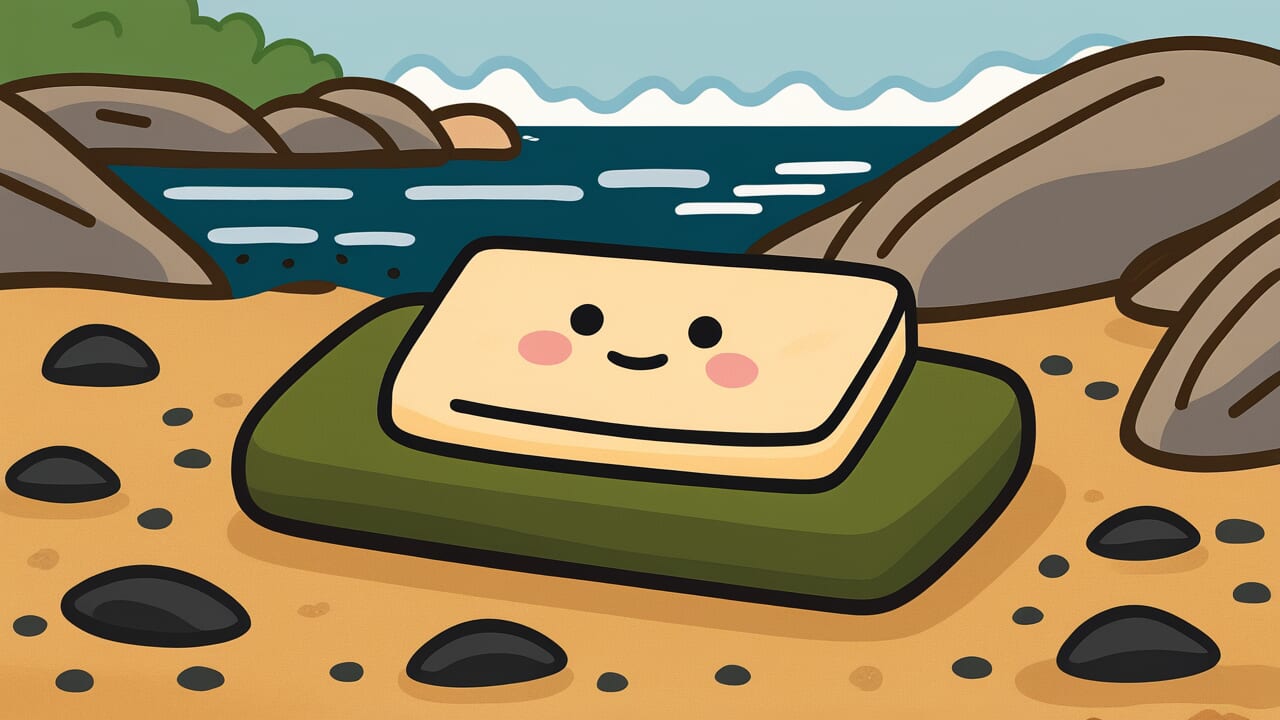How to Read “Shinagawa seaweed is Izu’s shore rice cake”
Shinagawa nori wa Izu no iso mochi
Meaning of “Shinagawa seaweed is Izu’s shore rice cake”
This proverb shows that the same thing or similar things can have different names depending on the region.
Shinagawa seaweed and Izu shore rice cakes both use seaweed as their main ingredient. But each region calls them by completely different names.
People use this expression when talking about regional differences in language or cultural diversity.
For example, a word that’s common in one area might not make sense in another region. Or the same thing might be called by a totally different name.
When people discover these differences, they use this proverb with a sense of surprise or discovery.
This teaching still applies today. The same product can have different brand names by region.
The same dish can be called different things depending on where you are. This isn’t unusual at all.
This proverb teaches us to recognize and respect regional character and cultural differences.
Origin and Etymology
No clear written records explain the origin of this proverb. But we can see an interesting background from the words themselves.
Shinagawa seaweed refers to nori cultivated off the coast of Shinagawa in Tokyo Bay during the Edo period.
It was extremely popular as Edo-style seaweed back then. Iso mochi, on the other hand, refers to food made with seaweed in the Izu region.
This proverb likely emerged as regional exchanges became more active during the Edo period.
As people traveled between different areas, they noticed something interesting. Similar seaweed products had completely different names depending on the location.
What people in Shinagawa called “nori” was known as “iso mochi” in Izu.
What makes this proverb especially interesting is its focus. It doesn’t just point out dialect differences.
Instead, it highlights how foods made from the same ocean resources have different names. Japan is surrounded by sea, so each region developed its own seafood culture.
As a result, essentially similar products got different names in each area. Each region treasured these products in their own way.
This proverb was born as an expression that symbolizes Japan’s rich regional cultural diversity.
Usage Examples
- What Tokyo calls nikuman, Osaka calls butaman – that’s exactly “Shinagawa seaweed is Izu’s shore rice cake”
- I was researching dialect differences and found it fascinating – it’s like “Shinagawa seaweed is Izu’s shore rice cake,” the same things have totally different names by region
Universal Wisdom
This proverb offers deep insight into the relationship between “names” and “reality” in human society.
We often judge things by their names. When names differ, we assume they’re different things.
But in reality, countless things exist in the world that are essentially the same, just called by different names.
Why was this proverb created and passed down through generations? Because humans are creatures who understand the world through language.
We understand, classify, and remember things by naming them. But at the same time, we risk losing sight of essence by becoming bound to those names.
The fact that similar ocean products had different names in Shinagawa and Izu symbolizes human society’s diversity.
Each region has its own history, culture, and language. Even when looking at the same thing, people give it different names and find different meanings based on their environment and culture.
This proverb teaches the wisdom of seeing through to the essence of things without being confused by surface differences.
It also suggests the importance of accepting differences and respecting diversity.
Even when names differ, the value of what people cherish remains the same. This universal truth is the deep wisdom this proverb holds.
When AI Hears This
Shinagawa seaweed and Izu shore rice cakes are cheap everyday items in their home regions. But swap their locations and they become rare luxury goods.
This is a perfect example of “context dependency” in information theory.
Information value isn’t absolute. It changes depending on the receiver’s situation.
For example, when you’re in a desert, the information “there’s water nearby” is valuable enough to save your life. But at home with running water, the same information has almost zero value.
For Shinagawa people, seaweed is “seaweed again?” But in landlocked parts of Izu, it becomes “how rare!”
When context like distance or scarcity changes, value assessment flips completely for the same item.
Modern online shopping and SNS recommendation systems work on exactly this principle.
Systems calculate “your location,” “past purchase history,” and “what people around you don’t have” to recommend products likely valuable to you.
They don’t recommend the same things to everyone. They optimize for each person’s context.
What’s fascinating is that Edo period people already had this “local optimization” wisdom.
They understood that relative evaluation from your own position is more practical than global absolute evaluation.
Hundreds of years before algorithms were invented, humans saw through to this truth from experience.
Lessons for Today
This proverb teaches us the importance of having a flexible mind that accepts diversity.
In our modern globalized society where various cultures and values intersect, it’s completely normal for different people to call or perceive the same thing differently.
What matters is not assuming that only the names and expressions you know are correct.
When someone uses different words, it’s not wrong. It simply reflects the environment and culture they grew up in.
Rather than being confused by surface differences, we need an attitude that seeks common ground and essence beneath them.
At work, at school, in our communities, we interact with people from various backgrounds.
Even when aiming for the same goal, the words and expressions used might differ. When that happens, remember this proverb.
Don’t reject differences. Instead, have the generosity to accept them: “Ah, that’s what you call it in your region.”
That becomes the first step toward building rich human relationships and creating a better society.



Comments